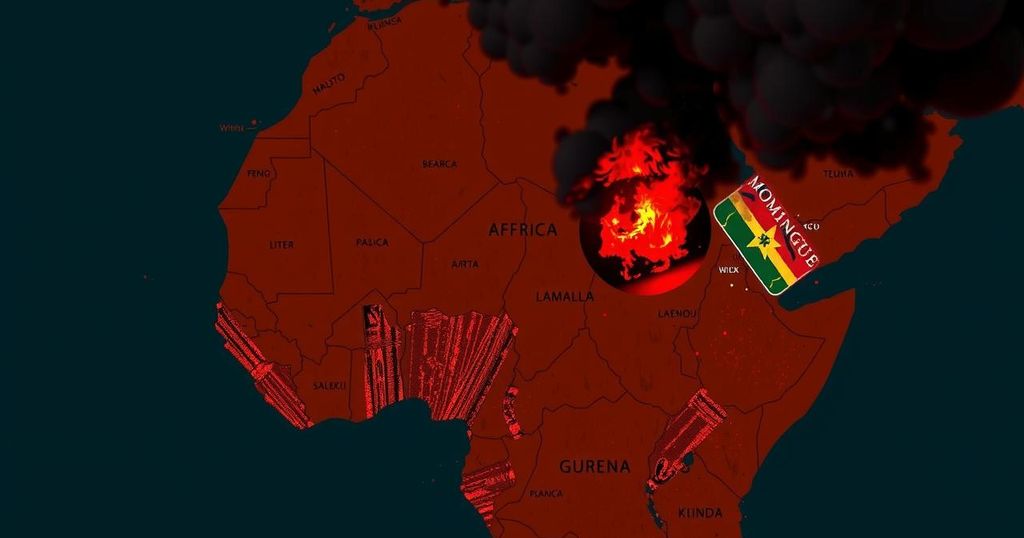Understanding the Impacts of Post-Election Violence in Mozambique on Southern Africa

Mozambique has been engulfed in protests and violence following disputed elections where the ruling Frelimo party extended its authority. The unrest has led to at least 30 fatalities and raised concerns regarding regional stability and economic implications for Southern Africa. Neighboring countries are affected by Mozambique’s turmoil, emphasizing the need for diplomatic intervention and a focus on improving electoral processes across the region.
Mozambique has faced significant unrest following the contentious October 9 elections, where the ruling party, Frelimo, extended its governance for an additional 49 years amidst widespread allegations of electoral fraud. The subsequent protests have resulted in over 30 fatalities, drawing international attention to the region’s stability and democratic integrity. Authorities have deployed police in an attempt to quell the unrest, signaling escalating tensions that could have broader implications for Southern Africa. Stability in Mozambique is critical not only for its citizens but also for neighboring countries in Southern Africa. As demonstrated by the recent border closures, South Africa’s economy is closely tied to Mozambique, particularly through trade routes essential for mineral exports. The sovereign integrity of Mozambique is therefore of utmost importance to the Southern African Development Community (SADC), which is set to address these concerns at its upcoming summit. Countries such as South Africa, Botswana, and Mauritius have recently demonstrated the functionality of stable governance and free electoral processes, in stark contrast to Mozambique, where political disagreements have been exacerbated by historical tensions and ongoing unrest. The post-election violence arises against a backdrop of Mozambique’s complex political landscape, marked by its struggle to recover from the aftermath of a lengthy civil conflict. The emergence of renewed electoral disputes is reminiscent of challenges faced by other Southern African nations, where electoral legitimacy remains precarious. Continued instability poses risks of regional migration crises and economic downturns, jeopardizing the progress made by other nations in the area, hence magnifying the urgency of clamoring for diplomatic interventions to stabilize Mozambique.
The situation following Mozambique’s October 9 elections is troubling, especially considering the country’s troubled past with civil conflict and instability. An independent candidate, Venancio Mondlane, has raised significant concerns regarding the legitimacy of the electoral process, attracting public support for protests against the Frelimo party’s electoral victories. This unrest draws parallels with broader concerns in Southern Africa, where several nations grapple with similar issues regarding democratic integrity and electoral fairness. The impact of this unrest transcends Mozambique’s borders, with severe economic and migration implications for its neighbors, making regional stability a shared concern.
In conclusion, the post-election violence in Mozambique underscores critical challenges to democratic processes in Southern Africa. With the SADC summit approaching, the need for dialogue and mediation has never been more pressing. Ensuring a peaceful resolution in Mozambique is essential not only for the country’s political stability but also for maintaining regional security and economic vitality. Stakeholders must prioritize engagement to address the current unrest and foster a culture of credible governance and respect for electoral outcomes.
Original Source: apnews.com






